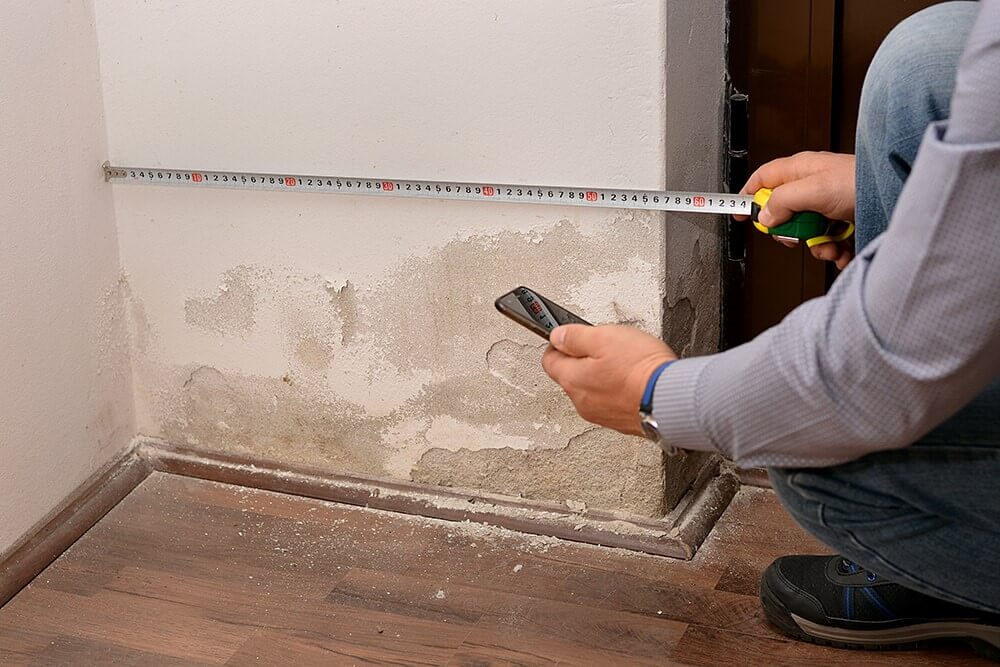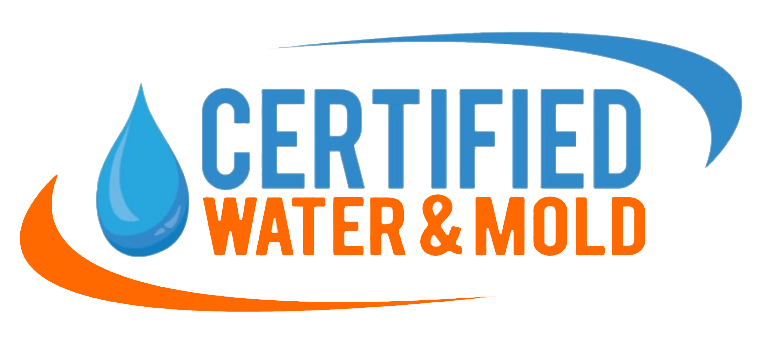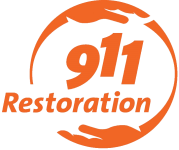Certified Water & Mold Restoration, LLC

CONTACT US
- 2021 B East Spruce Circle Olathe, KS 66062.
- 816-835-4959
- mike@cwmrestoration.com
BUISNESS LISTINGS
Causes of Mold Damage in Olathe & Overland Park, KS – How to Detect & Stop It.
Mold is a type of fungus that thrives in moist environments. It can grow on a variety of materials, including walls, ceilings, floors, furniture, and belongings. Mold damage can be unsightly and costly, and it can also pose health risks. Top
As a local company based right here in Overland Park, KS Certified Water & Mold understands the unique challenges faced when dealing with mold in their homes or businesses. With an annual average of 72.1% humidity—higher than Alabama, Georgia, & Wisconsin—Kansas is at increased risk of mold. But what are the other, most common causes of mold in KS? Let’s take a look. mold damage can be caused by a variety of factors. The high levels of humidity in the state, along with heavy rainfall and snowfall, contribute to the ideal conditions for mold growth.
Top causes of mold damage
• Leaks: Leaks from plumbing, roofs, or windows can provide mold with the moisture it needs to grow.
• High humidity: High humidity levels can also promote mold growth.
• Poor ventilation: Poor ventilation can trap moisture in the air, creating an ideal environment for mold.
• Water damage: Flooding or other water damage can lead to extensive mold growth.
• Dampness: Dampness in basements, crawl spaces, and other areas of the home can also encourage mold growth.
How to detect mold damage
• Look for signs of moisture: Mold often grows in areas where there is excess moisture. Look for signs of leaks, condensation, or dampness.
• Check for musty odors: Moldy areas often have a musty odor. If you smell something musty, investigate the area to see if mold is present.
• Inspect for visible mold: Mold can appear as black, green, white, or brown spots on walls, ceilings, floors, furniture, and belongings.
How to stop mold damage
• Fix the source of moisture: If you find mold, the first step is to fix the source of moisture. This may involve repairing a leaky pipe, fixing a leaky roof, or increasing ventilation.
• Clean up the mold: Once the source of moisture has been fixed, you need to clean up the mold. This can be done using a commercial mold cleaner or a mixture of bleach and water.
• Remove affected materials: In some cases, it may be necessary to remove affected materials, such as drywall or insulation, to prevent further mold growth.
Preventing mold damage
The best way to prevent mold damage is to avoid moisture buildup in your home. Here are some tips:
• Fix leaks promptly: If you see a leak, fix it immediately.
• Ventilate damp areas: Bathrooms, kitchens, and laundry rooms should have adequate ventilation to prevent moisture buildup.
• Use dehumidifiers: Dehumidifiers can help to reduce humidity levels in your home.
• Keep your home clean and dry: Clean up spills and wipe down wet surfaces promptly.
• Inspect your home regularly: Inspect your home for signs of mold growth on a regular basis.
If you suspect mold damage in your home, it is important to take action to prevent further growth and to protect your health.
The best way to prevent mold damage is to avoid moisture buildup in your home. Here are some tips:
• Fix leaks promptly: If you see a leak, fix it immediately.
• Ventilate damp areas: Bathrooms, kitchens, and laundry rooms should have adequate ventilation to prevent moisture buildup.
• Use dehumidifiers: Dehumidifiers can help to reduce humidity levels in your home.
• Keep your home clean and dry: Clean up spills and wipe down wet surfaces promptly.
• Inspect your home regularly: Inspect your home for signs of mold growth on a regular basis.
If you suspect mold damage in your home, it is important to take action to prevent further growth and to protect your health.
The best way to prevent mold damage is to avoid moisture buildup in your home. Here are some tips:
• Fix leaks promptly: If you see a leak, fix it immediately.
• Ventilate damp areas: Bathrooms, kitchens, and laundry rooms should have adequate ventilation to prevent moisture buildup.
• Use dehumidifiers: Dehumidifiers can help to reduce humidity levels in your home.
• Keep your home clean and dry: Clean up spills and wipe down wet surfaces promptly.
• Inspect your home regularly: Inspect your home for signs of mold growth on a regular basis.
If you suspect mold damage in your home, it is important to take action to prevent further growth and to protect your health.
The best way to prevent mold damage is to avoid moisture buildup in your home. Here are some tips:
• Fix leaks promptly: If you see a leak, fix it immediately.
• Ventilate damp areas: Bathrooms, kitchens, and laundry rooms should have adequate ventilation to prevent moisture buildup.
• Use dehumidifiers: Dehumidifiers can help to reduce humidity levels in your home.
• Keep your home clean and dry: Clean up spills and wipe down wet surfaces promptly.
• Inspect your home regularly: Inspect your home for signs of mold growth on a regular basis.
If you suspect mold damage in your home, it is important to take action to prevent further growth and to protect your health.
The best way to prevent mold damage is to avoid moisture buildup in your home. Here are some tips:
• Fix leaks promptly: If you see a leak, fix it immediately.
• Ventilate damp areas: Bathrooms, kitchens, and laundry rooms should have adequate ventilation to prevent moisture buildup.
• Use dehumidifiers: Dehumidifiers can help to reduce humidity levels in your home.
• Keep your home clean and dry: Clean up spills and wipe down wet surfaces promptly.
• Inspect your home regularly: Inspect your home for signs of mold growth on a regular basis.
If you suspect mold damage in your home, it is important to take action to prevent further growth and to protect your health.
The best way to prevent mold damage is to avoid moisture buildup in your home. Here are some tips:
• Fix leaks promptly: If you see a leak, fix it immediately.
• Ventilate damp areas: Bathrooms, kitchens, and laundry rooms should have adequate ventilation to prevent moisture buildup.
• Use dehumidifiers: Dehumidifiers can help to reduce humidity levels in your home.
• Keep your home clean and dry: Clean up spills and wipe down wet surfaces promptly.
• Inspect your home regularly: Inspect your home for signs of mold growth on a regular basis.
If you suspect mold damage in your home, it is important to take action to prevent further growth and to protect your health.
The best way to prevent mold damage is to avoid moisture buildup in your home. Here are some tips:
• Fix leaks promptly: If you see a leak, fix it immediately.
• Ventilate damp areas: Bathrooms, kitchens, and laundry rooms should have adequate ventilation to prevent moisture buildup.
• Use dehumidifiers: Dehumidifiers can help to reduce humidity levels in your home.
• Keep your home clean and dry: Clean up spills and wipe down wet surfaces promptly.
• Inspect your home regularly: Inspect your home for signs of mold growth on a regular basis.
If you suspect mold damage in your home, it is important to take action to prevent further growth and to protect your health.
The best way to prevent mold damage is to avoid moisture buildup in your home. Here are some tips:
• Fix leaks promptly: If you see a leak, fix it immediately.
• Ventilate damp areas: Bathrooms, kitchens, and laundry rooms should have adequate ventilation to prevent moisture buildup.
• Use dehumidifiers: Dehumidifiers can help to reduce humidity levels in your home.
• Keep your home clean and dry: Clean up spills and wipe down wet surfaces promptly.
• Inspect your home regularly: Inspect your home for signs of mold growth on a regular basis.
If you suspect mold damage in your home, it is important to take action to prevent further growth and to protect your health.
The best way to prevent mold damage is to avoid moisture buildup in your home. Here are some tips:
• Fix leaks promptly: If you see a leak, fix it immediately.
• Ventilate damp areas: Bathrooms, kitchens, and laundry rooms should have adequate ventilation to prevent moisture buildup.
• Use dehumidifiers: Dehumidifiers can help to reduce humidity levels in your home.
• Keep your home clean and dry: Clean up spills and wipe down wet surfaces promptly.
• Inspect your home regularly: Inspect your home for signs of mold growth on a regular basis.
If you suspect mold damage in your home, it is important to take action to prevent further growth and to protect your health.
The best way to prevent mold damage is to avoid moisture buildup in your home. Here are some tips:
• Fix leaks promptly: If you see a leak, fix it immediately.
• Ventilate damp areas: Bathrooms, kitchens, and laundry rooms should have adequate ventilation to prevent moisture buildup.
• Use dehumidifiers: Dehumidifiers can help to reduce humidity levels in your home.
• Keep your home clean and dry: Clean up spills and wipe down wet surfaces promptly.
• Inspect your home regularly: Inspect your home for signs of mold growth on a regular basis.
If you suspect mold damage in your home, it is important to take action to prevent further growth and to protect your health.
The best way to prevent mold damage is to avoid moisture buildup in your home. Here are some tips:
• Fix leaks promptly: If you see a leak, fix it immediately.
• Ventilate damp areas: Bathrooms, kitchens, and laundry rooms should have adequate ventilation to prevent moisture buildup.
• Use dehumidifiers: Dehumidifiers can help to reduce humidity levels in your home.
• Keep your home clean and dry: Clean up spills and wipe down wet surfaces promptly.
• Inspect your home regularly: Inspect your home for signs of mold growth on a regular basis.
If you suspect mold damage in your home, it is important to take action to prevent further growth and to protect your health.
The best way to prevent mold damage is to avoid moisture buildup in your home. Here are some tips:
• Fix leaks promptly: If you see a leak, fix it immediately.
• Ventilate damp areas: Bathrooms, kitchens, and laundry rooms should have adequate ventilation to prevent moisture buildup.
• Use dehumidifiers: Dehumidifiers can help to reduce humidity levels in your home.
• Keep your home clean and dry: Clean up spills and wipe down wet surfaces promptly.
• Inspect your home regularly: Inspect your home for signs of mold growth on a regular basis.
If you suspect mold damage in your home, it is important to take action to prevent further growth and to protect your health.
The best way to prevent mold damage is to avoid moisture buildup in your home. Here are some tips:
• Fix leaks promptly: If you see a leak, fix it immediately.
• Ventilate damp areas: Bathrooms, kitchens, and laundry rooms should have adequate ventilation to prevent moisture buildup.
• Use dehumidifiers: Dehumidifiers can help to reduce humidity levels in your home.
• Keep your home clean and dry: Clean up spills and wipe down wet surfaces promptly.
• Inspect your home regularly: Inspect your home for signs of mold growth on a regular basis.
If you suspect mold damage in your home, it is important to take action to prevent further growth and to protect your health.







